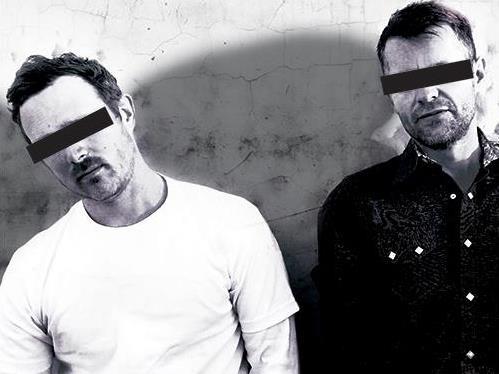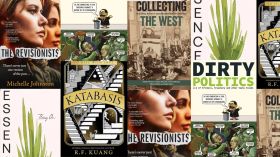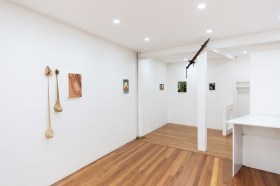Book cover image: On the Wagon by Lennox Nicholson, published by Affirm Press. Image via Affirm Press.
From its beginnings in the ancient world, to the invention of the printing press through to the billion dollar global industry it is today, publishing helps shape our lives. But while books’ authors get all the limelight, their publishers toil away behind the scenes with little recognition or fame.
The publisher is the acquisitor, decision maker and planner. From nurturing the very first ideas of a writer to ensuring the smooth run of the book’s production, a publisher is there every step of the way.
If you are an all-rounder who lives and breathes literature then maybe publishing is the job for you. But how does one get into the book game and start your publishing career?
Martin Hughes is the publisher for independent Melbourne-based publishing house Affirm Press and has had a long love affair with the written word that eventually led him to write and begin his publishing career. Starting off as a journalist, he continually built his knowledge base throughout his career.
‘I’d worked in journalism and travel writing and then I had an idea for my own book, The Slow Guide to Melbourne. It did so well that the logical move was to turn it into a series. The series didn’t go so well but I ended up with a publishing company anyway,’ Hughes told ArtsHub.
For Dr Ivor Indyk, publisher at Giramondo Publishing, it was the lack of diversity in Australian publishing that led him to his eventual career. ‘I started out as a literary critic and academic in Australian literature, but often the books I wanted to teach were out of print, and there were authors I admired who were having trouble being published, so I decided I needed to make a more active intervention in Australian writing, in the form of publishing,’ he said.
Formal training versus learning on the job
A passion for the Australian literary scene is a must but when entering a career in publishing, formal training is a prerequisite, Indyk and Hughes agree.
Indyk said: ‘There are good university masters courses in publishing which teach the basic skills, and I would recommend those. After that, it is very much learning on the job. As far as literary publishing is concerned, a well-trained critical sensibility is indispensable – you’re publishing to appeal, not to the market place, but to posterity.’
Hughes said that there are many benefits for learning on the job but education is a must. He said: ‘Learning on the job would be ideal but, unfortunately, you won’t get in the door unless you’ve got some training in publishing or editing at third level.’
A day in the life of a publisher
A typical day for a publisher doesn’t necessarily follow an ordered schedule. Publishing often follows seasonal rhythms and Martin admits to keeping unusual hours. ‘Right now I’m lying in bed at 3pm reading a manuscript but that’s not at all typical. Normally I’m in the office working with a team of eight others trying to produce the most entertaining and engaging books in the most efficient way.’
Indyk lives publishing and doesn’t limit himself to a typical 9-5 day. ‘Day and night – there are no boundaries if you are serious about publishing, especially if the publishing house is small and independent.’
Highlights and lowlights
‘There are many lowlights and highlights, since publishing is quite an emotional affair – you are working closely with authors, who become your friends, and who you often feel don’t get the attention and the accolades they deserve,’ said Indyk. ‘Of the more public kind of highlight, Alexis Wright’s Carpentaria winning the Miles Franklin Award; and the lowlight, having to spend a fortune defending the trademark of my literary journal HEAT against the predations of the multinationals EMAP and Bauer Media.’
Hughes said the best times override the hardest days. ‘Acquiring the debut novel from brilliant local talent Christian White was a definite highlight for us this year. His novel, provisionally called Decay Theory, won a very prestigious award for unpublished manuscript (the VPLAs) and we have already sold rights to it around the world. It’s fantastic and I can’t wait to publish it next year. The lowlight was not getting fashion icon Alannah Hill’s memoir but you can’t win them all.’
Career Advice
When reflected on his publishing career, Hughes advised: ‘Accept the fact that it’s not a great book or even a good book if nobody wants to read it.’
Indyk said when it comes to independent publishing to always remember: ‘Make sure you don’t spend your own money.’
Previous articles in this series:
Career Spotlight: General Manager
Career spotlight: Dramaturg
Career spotlight: Choreographer
Career spotlight: Curator
Career spotlight: Arts publicist
Career spotlight: Collection manager
Career spotlight: Registrar
Career spotlight: Art therapist
Career spotlight: Burlesque performer
Career spotlight: Conservator
Career spotlight: Contemporary jeweller
Career spotlight: Costume designer
Career spotlight: Floral artist
Career spotlight: Playwright
Career Spotlight: Puppeteer
Career spotlight: Set Designer
Career spotlight: Stage manager






